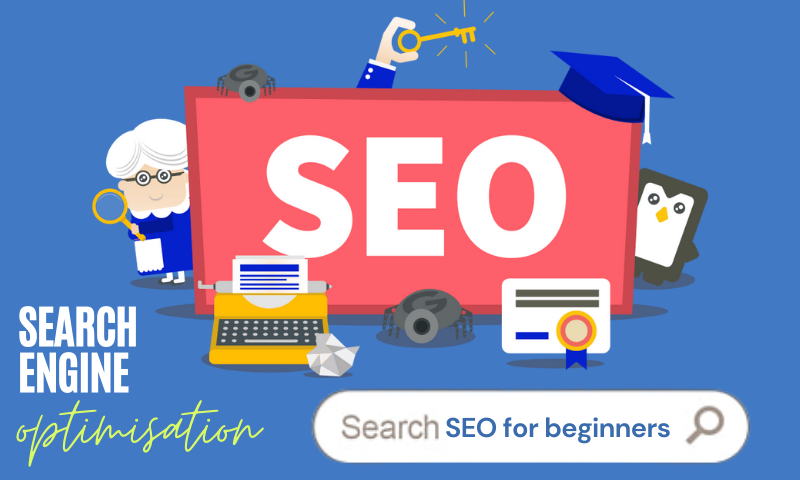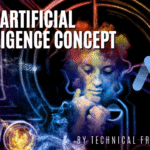Artificial Intelligence (AI) is transforming the way
businesses operate in the digital age. By utilizing AI technology,
businesses are able to analyze data, automate tasks, and provide personalized
experiences for customers. In this post, we’ll explore how AI is
transforming businesses in the digital age and what the future of AI
looks like.
What is Artificial Intelligence (AI)?
Artificial Intelligence (AI) refers to the simulation of
human intelligence in machines that are programmed to perform tasks that would
typically require human intervention. AI has the ability to learn and adapt from
experience and can execute tasks with accuracy and speed that is impossible for
humans to match. AI applications are increasingly becoming part of our daily
lives, from smartphones and home assistants to autonomous vehicles and robots
in manufacturing plants.
AI can be classified into two main categories: Narrow or
Weak AI and General or Strong AI. Narrow or Weak AI is designed to perform a
specific task, such as voice recognition or facial recognition. These systems
are programmed with a set of rules and algorithms and can only operate within
those parameters. General or Strong AI, on the other hand, is capable of
performing a broad range of tasks, similar to human intelligence.
AI works by processing large amounts of data and using
algorithms to identify patterns and make predictions based on that data.
Machine learning, a subset of AI, allows machines to learn and improve from
experience, without being explicitly programmed. This is done through the use
of neural networks, which mimic the structure and function of the human brain.
AI is transforming industries across the board, from
healthcare to finance and manufacturing. It is being used to automate tasks,
optimize processes, and improve decision-making. AI is also being used to
improve customer experiences, through personalized recommendations and chatbots
that can provide 24/7 customer support.
However, there are also concerns about the potential
negative impacts of AI, such as job displacement, privacy concerns, and bias in
decision-making. It is essential for policymakers, business leaders, and
society as a whole to consider the ethical and social implications of AI and to
ensure that it is developed and used responsibly.
Overall, AI has the potential to revolutionize our world and
bring about significant advancements in technology, business, and society.
Understanding AI and its potential applications is crucial for individuals and
organizations looking to stay ahead in the rapidly evolving technological
landscape.
How is AI transforming business?
Artificial Intelligence (AI) technology has rapidly
transformed many areas of our lives, from the way we communicate with each
other to the way we consume media. In recent years, AI has also become a
game-changer for businesses of all sizes and across a wide range of industries.
Here, we will explore how AI is transforming businesses and what you need to
know to stay ahead of the curve.
- Automating Business Processes
One of the most significant ways that AI is transforming
businesses is by automating many of their processes. AI-powered software can
perform tasks that once required human input, such as data entry, customer
service, and even legal research. This automation can save companies
significant time and money, freeing their employees to focus on higher-value
tasks.
- Improving Customer Service
AI-powered chatbots and virtual assistants are rapidly
improving the customer service experience. These bots can answer customer
questions and provide support 24/7, improving response times and reducing wait
times. They can also collect data on customer interactions, allowing companies
to better understand their customers’ needs and preferences.
- Enhancing Personalization
AI is also helping businesses to personalize their products
and services to each customer. By analyzing customer data, companies can tailor
their offerings to meet each customer’s specific needs and preferences. This
level of personalization can help businesses to increase customer loyalty and
drive sales.
- Optimizing Supply Chain Management
AI can also help businesses optimize their supply chain
management. By analyzing data on inventory, orders, and shipments, AI-powered
software can predict demand and optimize inventory levels, reducing waste and
improving efficiency. This can also help businesses to better manage their cash
flow and improve their bottom line.
- Increasing Efficiency and Accuracy in Decision-Making
AI-powered analytics can help businesses make better
decisions by analyzing large amounts of data and providing insights that humans
may miss. These analytics can also help to identify patterns and trends,
allowing businesses to make data-driven decisions. This can lead to increased
efficiency and accuracy in decision-making, improving business outcomes.
- Enhancing Cybersecurity
AI technology can also help businesses enhance their
cybersecurity. AI-powered software can detect threats in real time, allowing
companies to respond quickly and prevent data breaches. AI can also be used to
identify vulnerabilities and provide recommendations for improving
cybersecurity measures.
Improved Efficiency
One of the primary benefits of AI is its ability to automate
tasks previously done manually. This includes tasks such as data
entry, inventory management, and customer service. By automating these tasks,
businesses can free up their employees’ time to focus on more important tasks,
such as strategy and innovation. Additionally, AI can analyze data faster and
more accurately than humans, leading to improved decision-making and increased
efficiency.
Personalization
AI is also enabling businesses to provide personalized
experiences for their customers. By analyzing customer data, businesses can
provide personalized recommendations, product suggestions, and marketing
messages. This not only improves the customer experience but also increases
customer loyalty and revenue.
Fraud Detection
AI is also capable of real-time fraud detection. This
includes credit card fraud, identity theft, and fraudulent transactions. By
using AI algorithms to analyze large amounts of data, businesses can identify
fraudulent activity and take action to prevent it.
Predictive Analytics
AI can also be used for predictive analytics. By analyzing
data, AI can predict future trends, customer behavior, and market conditions.
This allows businesses to make more informed decisions and stay ahead of their
competition.
Chatbots
Chatbots are another application of AI that is transforming businesses
in the digital age. Computer programs known as chatbots may mimic human speech.
They are commonly used for customer service, as they can provide quick and
efficient responses to customer inquiries. This enhances the client experience
while also lightening the strain on customer support agents.
The Future of AI
The future of AI is exciting and holds enormous potential
for businesses. As AI technology continues to evolve, businesses will be able
to achieve even greater levels of efficiency, personalization, and innovation. The
effects of AI on employment and privacy, however, are also a source of worry.
It is important for businesses to consider these issues and develop ethical
guidelines for the use of AI.
Artificial Intelligence (AI) technology is rapidly
advancing, with new breakthroughs and applications emerging every day. The
future of AI technology is both exciting and uncertain, as the possibilities
for AI seem almost limitless, but there are also concerns about the ethical and
societal implications of its development and use.
One area where AI technology is expected to have a
significant impact is in the workplace. AI is already being used to automate
tasks and improve productivity, but in the future, it could also help to create
entirely new industries and jobs. For example, the development of autonomous
vehicles could create a need for new roles in transportation and logistics.
AI is also expected to transform healthcare in the coming
years. AI-powered medical diagnosis and treatment systems could improve
accuracy and speed, while AI-powered virtual assistants could provide 24/7
healthcare support. AI could also help to identify new drug targets and
accelerate the drug discovery process.
Another area where AI technology is expected to make a
significant impact is education. AI-powered learning systems could
personalize learning experiences for students and provide targeted interventions
for struggling learners. AI could also help to automate administrative tasks,
freeing up educators to focus on teaching and mentoring.
However, there are also concerns about the ethical and
societal implications of AI technology. As AI becomes more advanced, there are
concerns about job displacement, bias in decision-making, and potential misuse
of technology. It is essential for policymakers, business leaders, and
society as a whole to consider the ethical and social implications of AI and to
ensure that it is developed and used responsibly.
The future of AI technology is both exciting and uncertain.
AI is expected to transform industries across the board, from healthcare to
education and beyond. However, there are also concerns about the potential
negative impacts of AI and the need for responsible development and use. It is
crucial for individuals and organizations to stay informed about AI technology
and its potential applications, while also considering the ethical and social
implications of its development and use.
Conclusion
In conclusion, AI is transforming businesses in the digital
age by improving efficiency, personalization, fraud detection, predictive
analytics, and chatbots. As AI technology continues to evolve, businesses will
be able to achieve even greater levels of efficiency and innovation. To design
policies for its usage, organizations must take into account the ethical
aspects of AI.




.jpg)
.jpg)
